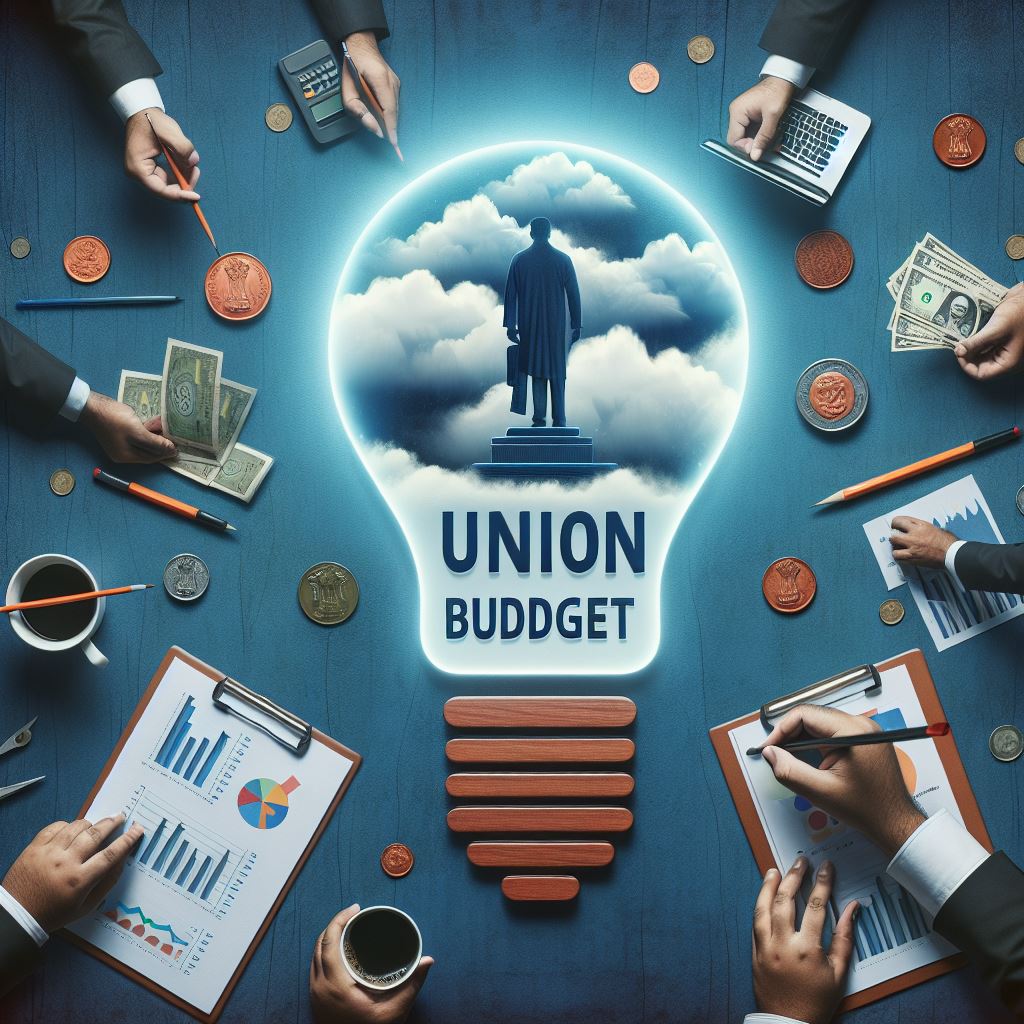Table of Contents
ToggleUnion Budget | From Halwa Ceremonies to Parliament Approval : A Step-by-Step Overview

Creating a budget is a detailed process involving many steps and discussions. Each step is crucial to ensure that public money is used wisely and allocated appropriately. The budget determines how the government operates and spends its resources to develop the nation.
In India, the Union Budget is presented every year on February 1. The process begins around August-September, nearly six months before the presentation date. Let’s break down the budget making process into simple steps:
Initiating the Budget making process:
The finance ministry sends circulars to ministries, states, union territories, and other entities, providing guidelines and forms.
Ministries share their earnings, expenses, and estimates for the previous year.
Evaluation and Discussions:
Top government officials review and discuss the requests from ministries and the department of expenditure.
If there are disagreements on how to allocate money, the finance ministry talks with the Union Cabinet or the prime minister.
Allocation of funds:
Validated information allows the finance ministry to allocate revenue to different divisions for upcoming expenses.
Consultation with Stakeholders:
The department of economic affairs and the department of revenue consult with various stakeholders like agriculturists, small business owners, and foreign investors.
Pre-Budget meetings are held with state representatives, agriculturists, bankers, economists, and trade unions.
Final Discussions:
The finance ministry discusses all requests with the prime minister before confirming decisions.
Halwa Ceremony:
As a tradition, a halwa ceremony is conducted a few days before the Budget announcement.
A large frying pot is used to make “halwa,” which is shared with the entire finance ministry workforce.
Budget Presentation:
The finance minister presents the Budget to Parliament on the first day of the Budget session.
Key points and the reasoning behind proposals are explained during the presentation.
Parliament Approval:
The Budget is laid before both houses of Parliament for discussion.
After approval by both houses, it is forwarded to the President for final approval.
This systematic approach ensures that the government’s financial plans are transparent, well-considered, and meet the needs of the nation.
Union Budget Objectives and Importance
The Union Budget holds great importance in steering the economic growth of our country while promoting social justice and equality. Here are key Union budget objectives that underline its significance in straightforward terms.
Efficient Resource Allocation
The Union Budget ensures the best use of available resources to maximize government profits, promoting the welfare of the public. It plays a vital role in distributing resources to benefit the social and economic well-being of the country.
Reducing Unemployment and Poverty
A crucial goal of the Union Budget is to eliminate poverty and create more job opportunities. This ensures that every citizen can meet their basic needs such as food, shelter, clothing, healthcare, and education.
Addressing Income Disparities
In India, income and wealth disparities are prevalent. The budget helps influence income distribution through subsidies and taxes. It ensures higher taxes on the wealthy, reducing their disposable income, while lower-income groups face lower taxes to maintain sufficient income.
Price Stability
The Union Budget helps control economic fluctuations, managing inflation and deflation to maintain economic stability. During inflation, surplus budget policies are implemented, and during deflation, deficit budget policies are devised, contributing to stable prices in the economy.
Tax Structure Changes
The budget influences changes in direct and indirect taxes. The government may provide allowances and tax concessions to various stakeholders, affecting the overall tax structure.
Direct Production of Goods and Services
When the private sector is unwilling or unable, the government may directly undertake production processes to ensure the availability of essential goods and services.
Economic Stability
The budget serves as a tool to prevent major fluctuations in the economy, maintaining financial stability. Strategic policies, such as implementing a deficit budget during deflation and a surplus budget during inflation, contribute to economic stability.
Management of Public Enterprises
Numerous public sector industries are established with the primary aim of promoting the social welfare of the population. Within the budget framework, allocations are earmarked to facilitate the smooth operation of these enterprises, ensuring they receive the essential financial assistance required for their sustained functioning.
Stimulating Economic Growth
Economic growth relies heavily on investments and savings. The budget aims to mobilize sufficient resources for public sector investments, fostering overall economic growth.
Reducing Regional Disparities
The government budget strives to minimize regional inequalities through taxation and expenditure policies that encourage the establishment of production units in less developed regions.


3 thoughts on “Union Budget Making Process and Union Budget Objectives”